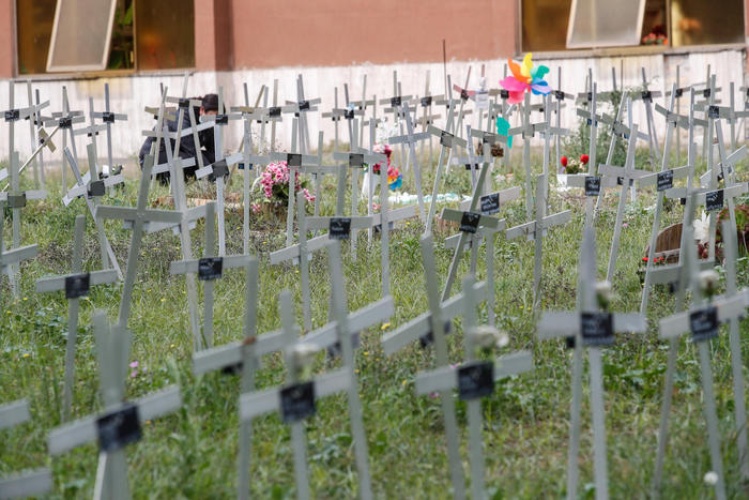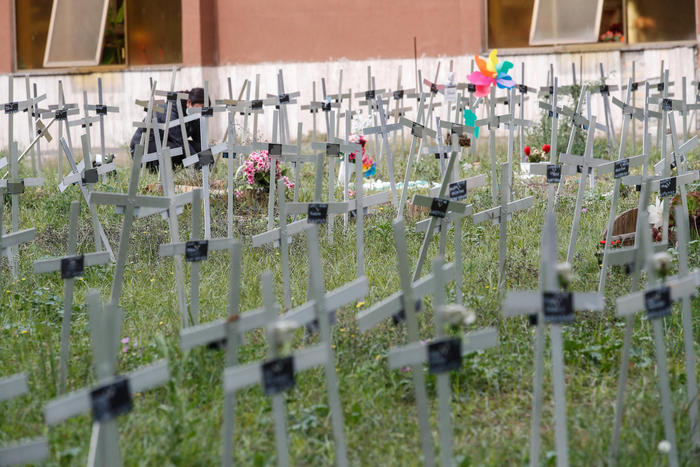The discovery of the graves only came to light last week after one of the women, who became curious after reading about the so-called “fields of angels” in local newspapers, discovered a plot with a wooden cross bearing her name and the date on which her unborn child was buried at Prima Porta cemetery.
The cross is among hundreds that fill a section of the cemetery, labelled with the names of the women who had lawful abortions.
Most of the graves date from between 2017 and 2020, but some say the practice dates back to 2005.
Following her discovery, the woman – identified as Francesca – posted about her experience on Facebook and the message soon went viral.
The graveyard has provoked outrage from women’s rights groups and the women involved, who say it is a serious violation of human rights and “like a sign of punishment”.
More than 100 women have since rallied for a potential class action in a scandal that has also reignited the debate in Italy over the difficulties women have in gaining access to safe abortions despite the procedure being legalised in 1978.
Abortion within the first 90 days of pregnancy has been legal in Italy since 1978, but the law allows for conscientious objectors among medical professionals.
Seven out of 10 gynaecologists in the country refuse to carry out the procedure for moral reasons.
Women can access abortions at just five hospitals in Rome and none in the wider Lazio region, due to the lack of medics who perform them.
Italy’s privacy watchdog has opened an investigation into the graves, which appears for now to be a bureaucratic procedure gone awry.
A national law from 1990 calls for foetuses less than 20 weeks old to be incinerated by hospital personnel.
But hospitals can entrust foetuses aborted after 20 weeks to cemetery services for burial even without the consent of family members.
While hospital permits required for the transport and burial of the foetuses can include women’s personal data, those records are supposed to be kept confidential.
The hospital where Francesca underwent the abortion said in a statement that the remains of foetuses were identified with the mother’s name only for the purposes of drafting transport and burial permits.
These details were then given to Ama, the public services firm that manages Rome’s cemeteries.
“The subsequent activities relating to the transport, management and burial of the foetus are the complete and exclusive competence of Ama,” the statement read.
“The hospital and ASL in no way contribute to any choice regarding the burial activities.”
Ama also denied responsibility, saying it carries out burials upon the instruction of the health authority.
The investigation is ongoing, while women’s rights activists have called on Health Minister Roberto Speranza to intervene.
A similar graveyard has subsequently been discovered in Brescia, in the northern region of Lombardy.












